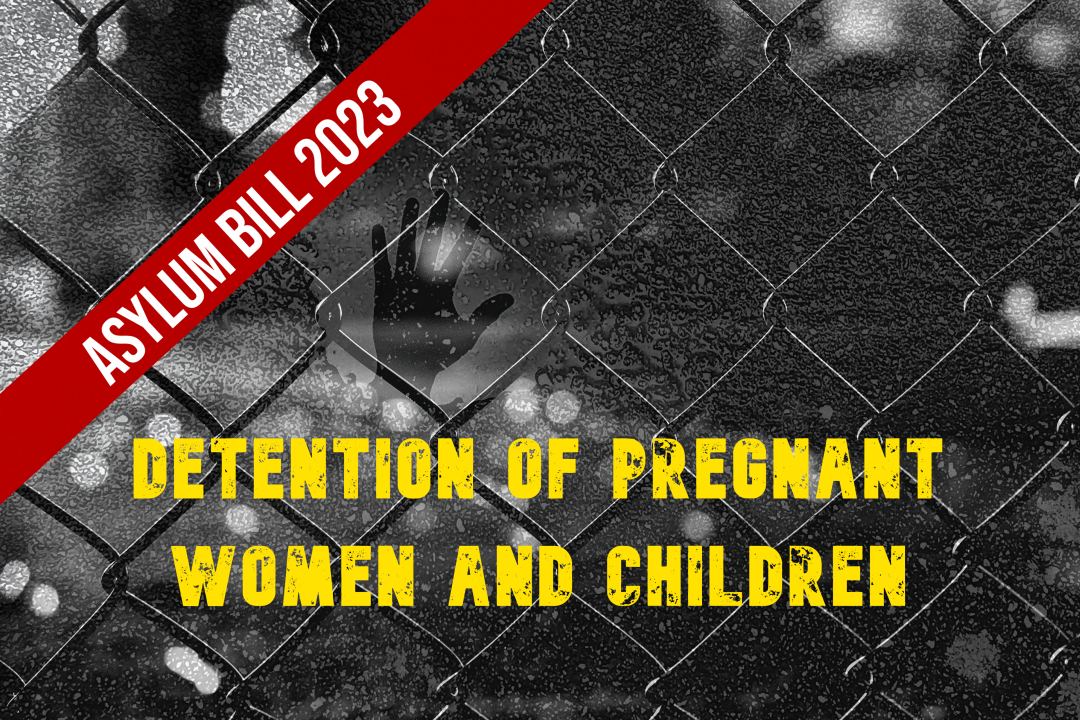I have been working as an immigration and human rights lawyer for over a decade. Honestly, over these years I have witnessed the making the today’s hostile immigration policies. However, from my experience, I can say the Home Office is not a modern-day ‘Gestapo’ and detaining children, pregnant women and vulnerable adults were always off the table. There’s a line of humanity and professionalism that has always been maintained by the Home Office. However, I am not sure how long the line of decency is like gonna hold in the wake of this Asylum Bill 2023. It’s not only me. I guess many lawyers and organisations are concerned about this law.
Human rights advocates and organisations are alarmed by Rishi Sunak’s proposed legislation regarding asylum. The proposed legislation would violate international obligations to protect human rights and expose vulnerable individuals to grave danger. The Equality and Human Rights Commission (EHRC) has raised concerns about the legislation, stating that it would permit the detention of expectant women and children and would not consider the impact on torture survivors and disabled individuals.
Concerns have also been raised by the EHRC regarding the eradication of protections for victims of trafficking and modern slavery. The provisions of the proposed legislation would jeopardise the right to an effective remedy, violate the non-refoulment principle, endanger victims of forced labour and modern slavery, and deny international protection seekers the right to seek asylum, all without regard for the best interests of the child.
According to the EHRC, the detention of minors and pregnant women is especially concerning. Detention of vulnerable individuals has been a contentious issue for a very long time, with numerous organisations arguing that it is not an appropriate solution. Particularly vulnerable to injury during detention are children and pregnant women, which is why international conventions prohibit their detention.
The proposed legislation would also eliminate protections for victims of modern slavery and human trafficking. This is especially concerning because these individuals are already susceptible to exploitation and maltreatment. The removal of protections could result in additional injury and exploitation, leaving individuals without adequate protection and support.
The migration committee of the Council of Europe has also accused Sunak’s government of “deliberately distorting core United Nations and European conventions that the United Kingdom itself helped design.” The council, comprised of representatives from 46 member nations, has stated that the proposed legislation would endanger victims of forced labour and modern enslavement and deny international protection seekers the right to seek asylum, without regard for the best interests of the child.
Evidently, the proposed legislation would violate international obligations to safeguard human rights and expose vulnerable individuals to grave harm. Asylum seekers, especially vulnerable ones, need support and protection, not detention and revocation of protection. The government of the United Kingdom must reconsider the proposed legislation and guarantee that any new measures comply with international human rights standards. Effective, rights-compliant action is required to prevent further loss of life during treacherous Channel crossings.
As an immigration and human rights lawyer, I find the proposed asylum legislation to be extremely concerning. The provisions permitting the detention of pregnant women and children violate international conventions and expose vulnerable individuals to the risk of injury. Particularly for children, detention can cause psychological damage and trauma, and pregnant women may not receive the appropriate medical care in detention centres.
In addition, it is alarming that protections for victims of human trafficking and modern slavery have been removed. These individuals are already susceptible to exploitation and abuse; removing their protections could result in additional damage.
It is crucial that the British government ensures that any new policies adhere to international human rights standards. Asylum seekers, especially vulnerable ones, need support and protection, not detention and revocation of protection.
The migration committee of the Council of Europe’s accusations of “willful distortion of fundamental UN and European conventions” are also concerning. As a signatory to these conventions, the United Kingdom is obligated to uphold them. Any proposed legislation that violates these conventions undermines the United Kingdom’s commitment to international law and human rights.
The proposed legislation represents a step in the incorrect direction for the treatment of asylum seekers in the United Kingdom and violates fundamental human rights principles. As an immigration and human rights lawyer, I urge the government of the United Kingdom to reconsider the proposed legislation and ensure that any new measures comply with international human rights standards.



